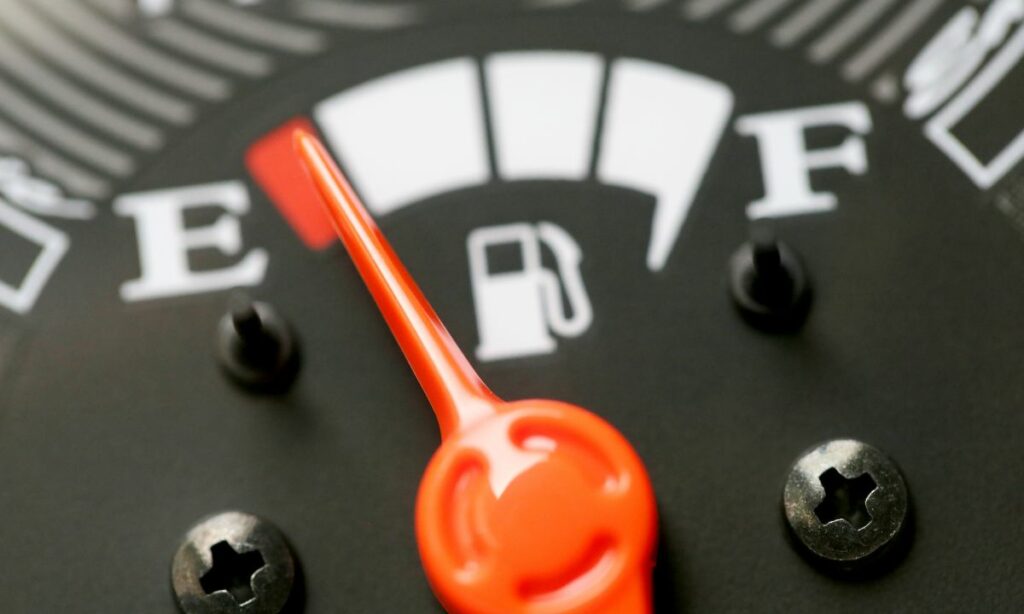Do you find yourself in the frustrating conundrum of your motorcycle running uncharacteristically rich? Perhaps you’ve noticed a sluggish performance, excessive fuel consumption, or a telltale black soot adorning your exhaust? If these symptoms resonate, it’s likely that your motorcycle is suffering from fuel overload, also known as running rich. Fret not, intrepid rider, for this comprehensive guide will equip you with the knowledge and techniques to diagnose and rectify this common motorcycle ailment.

Image: bikerestart.com
Understanding Fuel Overload: The Root of the Problem
Fuel overload, or running rich, occurs when an engine receives an excessively high ratio of fuel to air in its combustion chamber. This imbalance disrupts the engine’s proper functioning, leading to the symptoms mentioned earlier. The causes of fuel overload can be varied, but they often stem from issues with the carburetor or fuel injection system.
Diagnosing the Culprit: Uncovering the Cause
The first step in solving any problem is pinpointing its source. When it comes to fuel overload, several telltale signs can help you identify the potential culprit:
-
Black Soot on Spark Plugs: Black soot is a common indication of a rich fuel mixture.
-
Sluggish Performance: The excess fuel can hinder combustion efficiency, resulting in sluggish acceleration and reduced top speed.
-
Hesitation and Stalling: An overly rich fuel mixture can cause the engine to stumble, hesitate, or even stall when idle.
-
High Fuel Consumption: Running rich exacerbates fuel consumption, leading to reduced mileage and increased fuel costs.
Tools of the Trade: What You’ll Need for the Fix
Before embarking on the repair journey, ensure you have the necessary tools and supplies at hand:
-
Carburetor Cleaning Kit: For vehicles with carburetors, a cleaning kit is essential.
-
Fuel Injector Cleaner: If your motorcycle employs fuel injection, procure an appropriate cleaner.
-
Spark Plugs: Replace the existing spark plugs with new ones for optimal performance.
-
Basic Mechanics Tools: Wrenches, screwdrivers, and pliers will come in handy.

Image: www.reddit.com
Conquering Carburetors: A Step-by-Step Guide
-
Locate the Carburetor: Familiarize yourself with the carburetor’s location on your motorcycle.
-
Disassembly and Cleaning: Meticulously disassemble the carburetor and clean its components using the cleaning kit. Pay particular attention to the jets, float, and needle valve.
-
Reassembly and Adjustment: After thorough cleaning, reassemble the carburetor and adjust the float level and fuel mixture screws according to the manufacturer’s specifications.
Taming Fuel Injection: Diagnosing and Repairing
-
Identify the Fuel Injector: Locate the fuel injector responsible for the rich-running condition.
-
Cleaning and Testing: Remove and clean the fuel injector using an appropriate cleaning agent. Test its functionality to ensure proper atomization.
-
Sensor Inspection: Inspect related sensors, such as the oxygen sensor and mass airflow sensor, as they can influence the fuel mixture.
Additional Tips for a Fuel-Efficient Ride
-
Regular Maintenance: Adhere to the recommended maintenance schedule for your motorcycle, including regular carburetor cleaning or fuel injector servicing.
-
High-Quality Fuel: Use high-quality fuel to minimize impurities that can clog fuel system components.
-
Air Filter Inspection: Regularly inspect and replace the air filter to ensure optimal airflow.
Motorcycle Running Rich How To Fix
Conclusion: Mastering Fuel Economy, One Ride at a Time
By addressing fuel overload issues promptly and effectively, you can restore your motorcycle’s performance, enhance its fuel economy, and extend its lifespan. Remember, diagnosing and fixing running rich conditions is not merely a technical exercise but an opportunity to deepen your understanding of your motorcycle’s inner workings. With the knowledge and techniques outlined in this guide, you’re well-equipped to tackle fuel overload and conquer the open road with confidence and efficiency.







